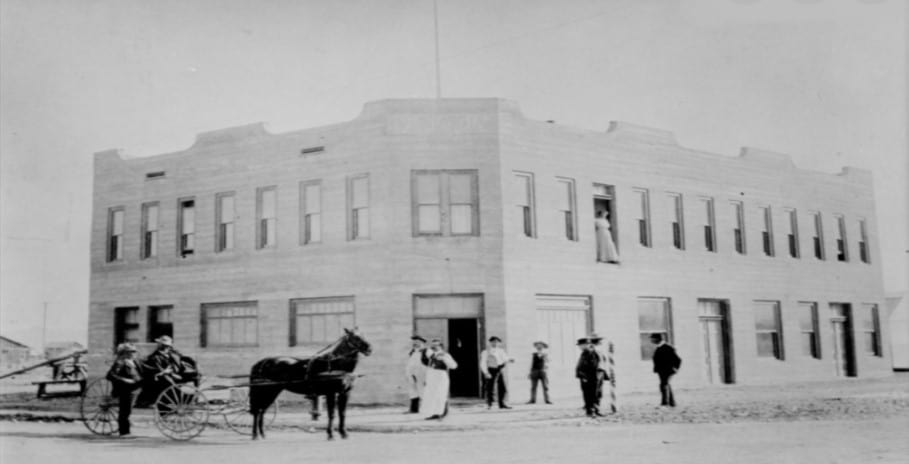
First Casino In Las Vegas: The Hotel Nevada
Hotel Nevada 1906
Las Vegas is the place for entertainment , attracting millions of visitors each year with its vibrant nightlife, luxurious resorts, and, of course, its famous casinos. One particular establishment holds the distinction of being the first-ever casino in Las Vegas – The Hotel Nevada. In this article, we will delve into the fascinating history of The Hotel Nevada, exploring its origins, significance, and lasting impact on the city’s gambling industry.
Las Vegas was once a modest desert town in Nevada, far from the bustling metropolis we know today. Before the bright lights and extravagant resorts, a small hotel with a vision would change the fate of this city forever. The Hotel Nevada holds the distinction of being the first-ever casino in Las Vegas, laying the foundation for the thriving gambling industry that would follow.
First Casino Built By Marion Hicks
The Hotel Nevada was built by a businessman named Marion Hicks. He envisioned creating a hotel in Las Vegas that would cater to the growing number of travellers passing through the area. In 1906, Hicks oversaw the construction of The Hotel Nevada on Fremont Street, laying the foundation for what would become the first-ever casino in Las Vegas. Hicks’s entrepreneurial spirit and foresight in recognizing the potential of the gambling industry in Nevada played a significant role in shaping the city’s future.
Initially, Marion Hicks intended for The Hotel Nevada to function solely as a hotel. When the hotel was constructed in 1906, gambling was not yet legalized in Nevada. It wasn’t until 1931, several years after Hicks’s ownership, that gambling became legal in the state. At that point, the owners of The Hotel Nevada seized the opportunity and obtained the first gaming license in Nevada, transforming the hotel into the first-ever casino in Las Vegas. So while Hicks initially planned for it to be a hotel, the shift to a casino came later in its history.
Early Beginnings of The Hotel Nevada
When Marion Hicks built The Hotel Nevada in 1906, his original vision was to establish a hotel that would cater to the needs of travellers passing through Las Vegas. The hotel was designed to provide comfortable accommodations, dining options, and other amenities for visitors in the area.
During that time, gambling was not yet legalized in Nevada. However, the hotel’s prime location on Fremont Street would later prove to be a strategic advantage when the laws surrounding gambling in the state began to change.
Transition to a Casino
In 1931, Nevada legalized gambling, marking a pivotal moment in the history of The Hotel Nevada. Recognizing the potential of the newly legalized industry, the owners of the hotel obtained the first gaming license in the state. This move allowed them to transform the existing hotel into a full-fledged casino, taking advantage of the growing popularity of gambling among locals and tourists.
The transition from a hotel to a casino was a significant turning point for The Hotel Nevada. The addition of slot machines, table games, and other forms of entertainment transformed the establishment into a hub of excitement and leisure. The casino quickly gained a reputation as a must-visit destination for those seeking their luck and entertainment in Las Vegas.
Success as a Casino
With its transition to a casino, The Hotel Nevada experienced significant success. It quickly became a popular destination for gambling enthusiasts, attracting both locals and tourists looking for entertainment and excitement. The casino floor buzzed with activity as slot machines chimed, card tables filled with players, and the atmosphere exuded an air of anticipation.
The Hotel Nevada’s success as a casino can be attributed to several factors. Its central location in downtown Las Vegas made it easily accessible to visitors, and its reputation as the first legal casino in the city added to its allure. The casino’s friendly staff, high-quality service, and a wide variety of gaming options contributed to its popularity.
Expansion and Upgrades
As The Hotel Nevada gained popularity, the owners recognized the need for expansion and improvement to meet the growing demand. Over the years, the casino underwent several expansions and renovations to accommodate the increasing number of guests and to enhance the overall experience.
The expansions included adding more gaming areas, introducing new and exciting casino games, and expanding the hotel accommodations. The owners spared no expense in creating an environment that exuded luxury and elegance. The Hotel Nevada became not just a place to gamble but also a destination for fine dining, live entertainment, and world-class hospitality.
Entertainment and Attractions
In addition to its casino offerings, The Hotel Nevada also became known for its entertainment and attractions. Renowned musicians, singers, and performers graced the stage, captivating audiences with their talent and charisma. The hotel’s showroom became a hot spot for live performances, showcasing some of the biggest names in the entertainment industry.
Beyond the stage, The Hotel Nevada featured other attractions such as bars, lounges, and restaurants, offering guests a complete entertainment experience. It became a social hub where visitors could enjoy a variety of activities, indulge in gourmet dining, and immerse themselves in a vibrant and lively atmosphere.
One of the highlights of The Hotel Nevada Casino was its live performances. The casino regularly featured renowned musicians, singers, and performers who took to the stage to entertain the audience. These live performances showcased a wide range of talent, including famous singers, bands, and comedians. Guests could immerse themselves in the captivating music and thrilling performances, creating unforgettable memories.
The hotel also had a dedicated showroom that hosted various performances and shows. This showroom was a hub of entertainment where guests could enjoy music, comedy, and theatrical productions. It provided a space for guests to relax and indulge in top-notch performances, adding to the vibrant atmosphere of the casino.
In addition to the live performances, The Hotel Nevada Casino offered a variety of bars and lounges where guests could unwind and enjoy drinks in a vibrant ambience. These establishments often featured live music, creating an engaging and lively atmosphere. Guests could socialize, sip on their favorite beverages, and enjoy the entertainment provided by talented musicians and performers.
The culinary offerings at The Hotel Nevada Casino were also a major draw for visitors. The casino boasted restaurants and dining options that catered to the discerning palate of its guests. From fine dining establishments to casual eateries, guests could indulge in a variety of delicious dishes prepared by talented chefs. The gourmet dining experiences at The Hotel Nevada Casino were an integral part of the overall entertainment package, ensuring that guests could savour exquisite meals in a luxurious setting.
Furthermore, The Hotel Nevada Casino was known to host various social events, including parties, galas, and themed celebrations. These events added to the vibrant and lively atmosphere of the casino, creating a sense of excitement and anticipation among guests. Whether it was a grand gala or a themed party, the casino provided opportunities for guests to mingle, dance, and have a memorable time.
While these are some of the entertainment and attractions that were associated with The Hotel Nevada Casino, it’s important to note that the specific offerings may have varied over time. However, during its prime years, The Hotel Nevada Casino left a lasting impression on guests with its live performances, showroom shows, bars and lounges, gourmet dining, and social events, making it a sought-after destination for those seeking entertainment and excitement.
The World’s Finest Entertainment
Al Jolson: Al Jolson, often referred to as “The World’s Greatest Entertainer,” was a popular singer, comedian, and actor. Known for his charismatic stage presence and memorable performances, he entertained audiences with his energetic singing and comedic talent.
Fanny Brice: Fanny Brice was a comedic actress, singer, and comedian who gained fame for her vaudeville performances. Her comedic timing and unique vocal style made her a beloved entertainer during the early 20th century.
W.C. Fields: W.C. Fields was a renowned actor, comedian, and vaudevillian known for his humorous and often sarcastic persona. He captivated audiences with his dry wit and memorable comedic performances.
Eddie Cantor: Eddie Cantor was a popular singer, comedian, and actor with his energetic stage presence and comedic timing. His talents encompassed both vaudeville and Broadway, making him a versatile entertainer of his time.
Sophie Tucker: Sophie Tucker, often referred to as “The Last of the Red Hot Mamas,” was a renowned singer and entertainer known for her powerful voice and comedic charm. She was a trailblazer in the world of entertainment, breaking barriers for female performers.
These are just a few examples of performers who were active during or after 1905. While I cannot provide an exhaustive list, these individuals were known for their contributions to the entertainment industry during that period.
Please note that availability and specific performances at The Hotel Nevada Casino would depend on various factors such as contractual agreements, touring schedules, and the specific era in which the casino operated.
Changing Hands and Renovations
Over the years, The Hotel Nevada changed ownership multiple times, with each new proprietor leaving their mark on the establishment. With each transfer of ownership, renovations and upgrades were undertaken to keep the casino in line with the evolving tastes and expectations of the guests.
New owners injected fresh ideas, innovative designs, and modern amenities into The Hotel Nevada. They aimed to enhance the overall guest experience while maintaining the casino’s unique charm and allure. Renovations included expanding the gaming floor, introducing state-of-the-art slot machines and table games, and creating luxurious accommodations for visitors.
These renovations not only kept The Hotel Nevada competitive in the ever-growing Las Vegas gambling industry but also contributed to the ongoing transformation of the city into a world-class entertainment destination.
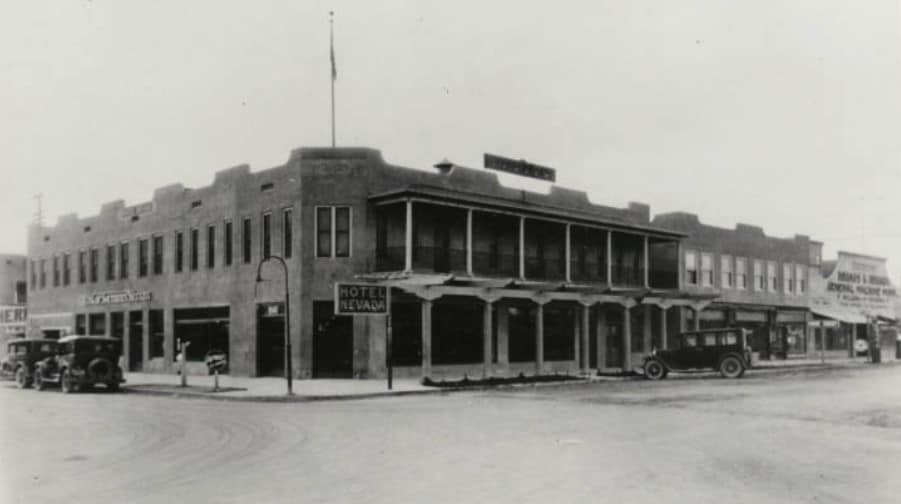
The End of An Era
Despite its historical significance and the various renovations it underwent, The Hotel Nevada faced challenges that ultimately led to its closure. In 1942, tragedy struck when a devastating fire broke out, causing significant damage to the property. Although efforts were made to rebuild and restore the casino, it never fully regained its former glory.
As time went on, newer, more extravagant resorts began to emerge in Las Vegas, captivating visitors with their grandeur and modern amenities. The Hotel Nevada, once a trailblazer, found it difficult to compete with these larger and more opulent establishments.
Sadly, The Hotel Nevada closed its doors for the final time in 1951, marking the end of an era for the first-ever casino in Las Vegas. While its physical presence may have faded away, its legacy and influence on the city’s gambling industry continued to resonate.
Legacy and Influence
The Hotel Nevada’s legacy as the first casino in Las Vegas remains significant. It paved the way for the development and expansion of the city’s gambling industry, setting the stage for the iconic resorts and casinos that dominate the Las Vegas Strip today. The pioneering spirit of The Hotel Nevada inspired future entrepreneurs and visionaries to invest in the city, contributing to its transformation into a global entertainment powerhouse.
The success and impact of The Hotel Nevada can still be seen in the casinos and resorts that followed in its footsteps. It played a big role in shaping the gambling culture of Las Vegas, defining it as a destination that combines thrilling gaming experiences with world-class entertainment, luxury accommodations, and exceptional hospitality.
Though The Hotel Nevada may have closed its doors, its influence on the city’s history and the broader gambling industry will forever be etched in the annals of Las Vegas
The Birth of Las Vegas
In the early 1900s, Las Vegas was a mere stopover for travelers on their way to California. Gambling in Nevada became legal in 1931, however, set the stage for a dramatic transformation. Entrepreneurs and visionaries saw an opportunity to create an entertainment destination that would capture the imagination of visitors from all over the world.
Early Beginnings of The Hotel Nevada
In 1906, a small establishment named The Hotel Nevada was built on Fremont Street, the heart of downtown Las Vegas. Originally constructed as a hotel, it wasn’t until 1931 that gambling became legal in Nevada. The owners of The Hotel Nevada seized this opportunity and obtained the first-ever gaming license in the state.
The Opening Night
On March 20, 1931, The Hotel Nevada made history as it opened its doors to the public as the first legal casino in Las Vegas. The initial casino floor featured slot machines, blackjack tables, and a lively atmosphere that attracted locals and tourists alike. The opening night was a resounding success, marking the beginning of a new era in the city’s history.
Success and Expansion
As the first casino in Las Vegas, The Hotel Nevada enjoyed unprecedented success. The popularity of gambling was on the rise, drawing visitors from nearby states and beyond. The hotel underwent several expansions to accommodate the growing number of guests and to introduce new amenities and entertainment options. The success of The Hotel Nevada set the stage for the rapid growth of Las Vegas as a gambling destination.
Changing Hands and Renovations
Over the years, The Hotel Nevada changed ownership multiple times, each new proprietor leaving their mark on the establishment. Renovations and upgrades were undertaken to keep up with the evolving tastes and expectations of visitors. Despite the changes, the spirit of the original casino remained intact, attracting patrons with its timeless charm and allure.
The End of an Era
In 1942, The Hotel Nevada faced a tragic event when a fire broke out, causing significant damage to the property. Despite rebuilding efforts, the hotel never fully recovered from the incident. The once-pioneering establishment began to lose its luster as newer, more extravagant resorts emerged in Las Vegas. The Hotel Nevada closed its doors in 1951, marking the end of an era.
Legacy and Influence
Although The Hotel Nevada’s reign as the first casino in Las Vegas was relatively short-lived, its impact on the city’s gambling industry cannot be overstated. It paved the way for the countless casinos that would come to define the Las Vegas Strip in the decades that followed. The Hotel Nevada set the standard for entertainment, gaming, and hospitality, creating a blueprint that other establishments would emulate.
The success of The Hotel Nevada inspired entrepreneurs to invest in the development of more extravagant and luxurious resorts, leading to the transformation of Las Vegas into a world-renowned entertainment destination. It became a symbol of glamour and excitement, attracting famous entertainers, celebrities, and high-rolling gamblers from around the globe.
The Hotel Nevada’s transformation from a hotel to the first-ever casino in Las Vegas marked a turning point in the city’s history. Its success as a casino paved the way for the remarkable growth and development of the gambling industry in Las Vegas. With its prime location, exceptional service, and commitment to providing an unforgettable entertainment experience, The Hotel Nevada set the standard for future casinos in the city.
As the first establishment to offer legal gambling, The Hotel Nevada left an indelible mark on the landscape of Las Vegas. Its success inspired countless entrepreneurs and visionaries to invest in the city, leading to the creation of the iconic Las Vegas Strip.
FAQs
Is The Hotel Nevada still standing today?
No, The Hotel Nevada closed its doors in 1951 and was eventually demolished. However, its legacy lives on through the countless casinos and resorts that followed in its footsteps.
Who were some notable figures that frequented The Hotel Nevada?
The Hotel Nevada attracted a wide range of visitors, including celebrities, entertainers, and influential figures of the time. Famous individuals such as Frank Sinatra, Elvis Presley, and Howard Hughes were known to have spent time at the casino.
Did The Hotel Nevada contribute to the development of the Las Vegas Strip?
Yes, The Hotel Nevada played a big role in the developing the Las Vegas Strip. Its success inspired other entrepreneurs to invest in building larger and more extravagant resorts, ultimately transforming the Strip into a world-famous destination.
Are there any remnants or artifacts from The Hotel Nevada on display today?
While The Hotel Nevada itself no longer exists, some artifacts and memorabilia from the casino’s early days can be found in museums and collections dedicated to protecting the history of Las Vegas.
What was the significance of The Hotel Nevada’s gaming license?
The Hotel Nevada was the first establishment to obtain a gaming license after gambling was legalized in Nevada in 1931. This license set the precedent for the future licensing and regulation of casinos in the state.
In conclusion, The Hotel Nevada holds a special place in the annals of Las Vegas history as the first-ever casino in the city. Its humble beginnings and subsequent success laid the foundation for the thriving gambling industry that defines Las Vegas today. The Hotel Nevada’s legacy lives on through the numerous casinos and resorts that followed in its footsteps, cementing its status as a pioneer in the world of gambling and entertainment.
Las Vegas and Gambling History
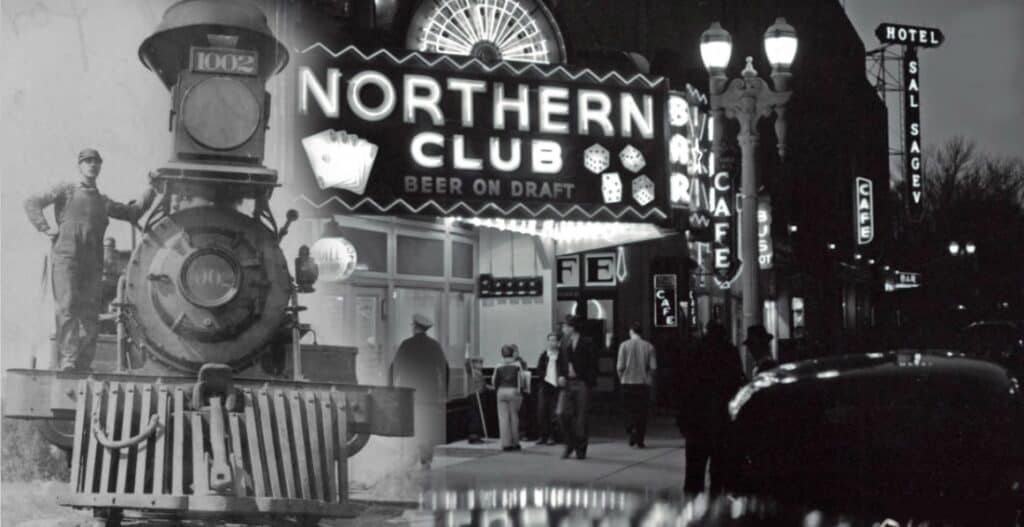
Las Vegas History: Railroad Development Paved the Way for Las Vegas to Become the Gambling Capital of the World
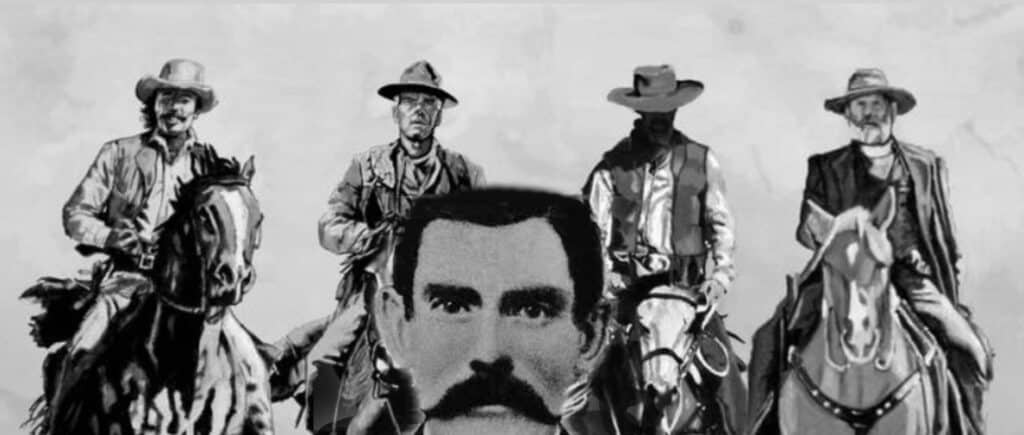
Las Vegas History: Doc Holliday Famous Gambler Gunslinger and Resident of Las Vegas
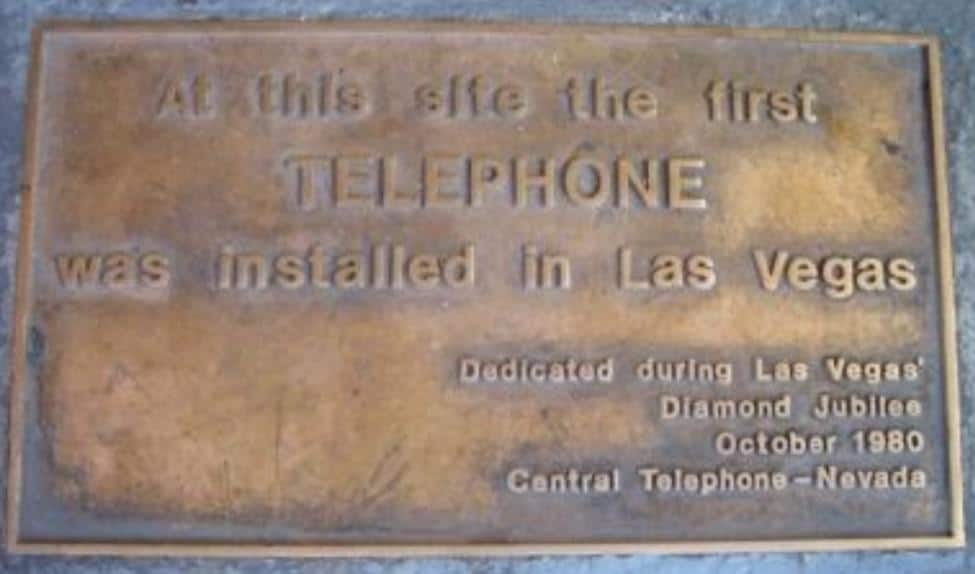
Las Vegas History: How Las Vegas’ First Telephone Exchange Made Bugsy Siegel’s Race Wire Possible

Las Vegas History: The Official Naming of Las Vegas 1905
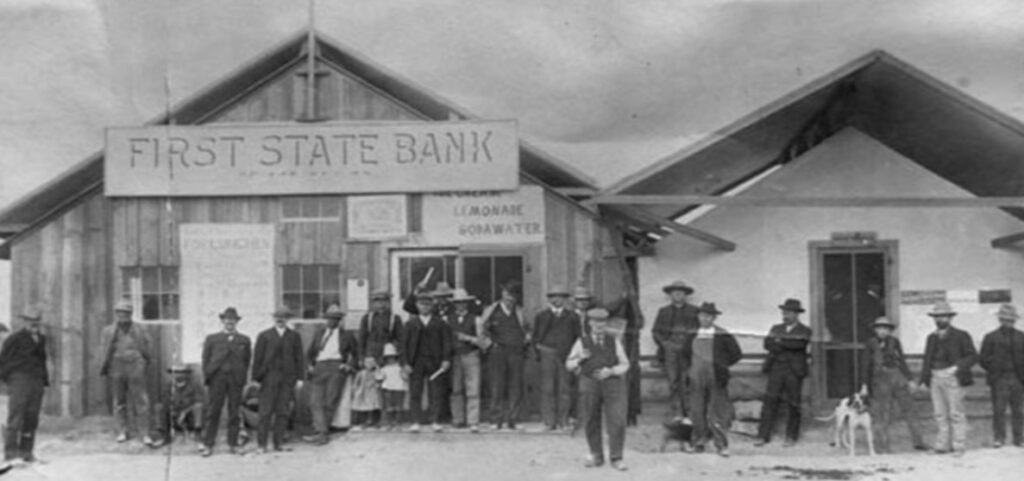
Las Vegas History: 1864 Las Vegas The Impact of Nevada Statehood
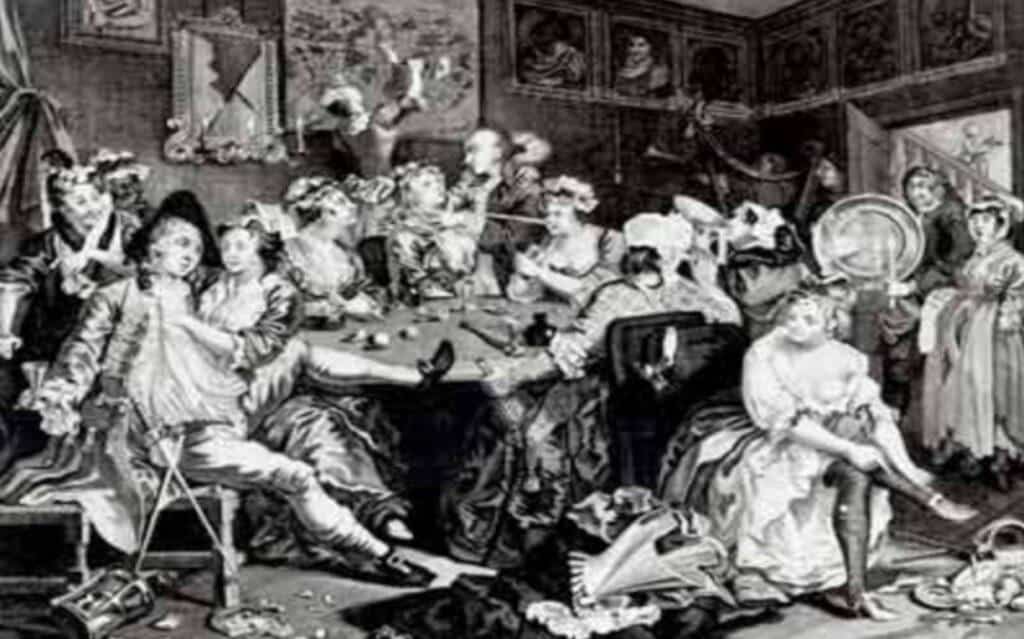
Las Vegas History: Las Vegas and It’s Vices in the 1850s
Frequently Asked Questions (FAQs)
1. What is the significance of The Hotel Nevada in Las Vegas history?
The Hotel Nevada holds the distinction of being the first-ever casino in Las Vegas. Built in 1906 by Marion Hicks, it played a pivotal role in shaping the city’s gambling industry and laid the foundation for the vibrant entertainment hub it is today.
2. Who was Marion Hicks, and what was his vision for The Hotel Nevada?
Marion Hicks was a businessman who envisioned creating a hotel to cater to the growing number of travelers passing through Las Vegas. His entrepreneurial spirit and foresight in recognizing the potential of the gambling industry in Nevada were instrumental in the city’s future.
3. Why was The Hotel Nevada initially constructed, and what was its early purpose?
When built in 1906, The Hotel Nevada was intended to function solely as a hotel. At that time, gambling was not legalized in Nevada. It provided accommodations, dining options, and amenities for visitors passing through Las Vegas.
4. When did The Hotel Nevada transition from a hotel to a casino?
The transition from a hotel to a casino occurred in 1931. After the legalization of gambling in Nevada, the owners obtained the first gaming license in the state, transforming The Hotel Nevada into the first-ever casino in Las Vegas.
5. Who were some of the early performers and entertainers at The Hotel Nevada?
The Hotel Nevada hosted renowned entertainers such as Al Jolson, Fanny Brice, W.C. Fields, Eddie Cantor, and Sophie Tucker. These performers, known for their singing, comedy, and acting talents, contributed to the lively entertainment atmosphere of the casino.
6. How did The Hotel Nevada become successful as a casino?
The Hotel Nevada’s success as a casino can be attributed to its central location, friendly staff, high-quality service, and a wide variety of gaming options. Its reputation as the first legal casino in Las Vegas added to its allure, attracting both locals and tourists.
7. What expansions and upgrades did The Hotel Nevada undergo?
Over the years, The Hotel Nevada underwent several expansions and renovations to meet the growing demand. This included adding more gaming areas, introducing new casino games, and expanding hotel accommodations. The owners aimed to create a luxurious environment for guests.
8. Who were some of the world-renowned performers at The Hotel Nevada’s showroom?
The hotel’s showroom hosted iconic performers such as Al Jolson, Fanny Brice, W.C. Fields, Eddie Cantor, and Sophie Tucker. These entertainers showcased their talents in music, comedy, and theatrical productions, contributing to the vibrant atmosphere of the casino.
9. How did ownership changes impact The Hotel Nevada, and what renovations were made?
The Hotel Nevada changed ownership multiple times, leading to renovations and upgrades. New owners introduced fresh ideas, modern amenities, and innovative designs to enhance the guest experience while preserving the casino’s unique charm.
10. What is the lasting legacy of The Hotel Nevada on Las Vegas?
The Hotel Nevada’s legacy is imprinted in Las Vegas history as the first casino, contributing to the city’s transformation into a world-class entertainment destination. Its early role as a hotel and subsequent transition into a casino played a crucial part in shaping the gambling industry and culture of Las Vegas.





